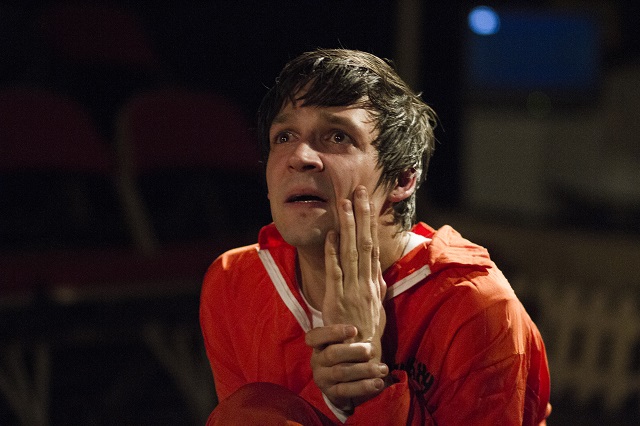You have no items in your cart. Want to get some nice things?
Go shopping
“If music be the food of love, play on,” entreats Duke Orsino at the start of Shakespeare’s beloved comedy Twelfth Night. The playwright here touches on the emotional impact music hopes to have on listeners – the idea that it can feed or exacerbate affection suggests song shares this important aim with prose, and in particular drama. Through the years, a whole host of other playwrights have chosen to mingle music – whether instrumental or vocal – into their dramatic works: to elevate atmosphere, cement character or simply to tug at our heartstrings. The majority of performances wouldn’t be complete without soundscapes and musical accompaniment lending a helping hand behind the scenes, even if it’s just to disguise complicated set changes.
But alongside the more obvious partnership between song and stage we are presented with in musicals, in recent years we have also seen something of a resurgence for “plays with music”, in which songs are woven into the action but generally are not used to move stories along but rather to comment from a distance on the main narrative or as shorthand for themes or moments of pathos. In a similar manner to Bertolt Brecht’s Mother Courage and her Children, “plays with music” can allow us to take a step back or a breather and reflect on what we have just seen, or use song to introduce characters or a change in mood or place. Some key examples of this form of theatre have been offered up by prolific adaptor (Liolá, Dara) and playwright in her own right Tanya Ronder.
Debuting in 2007 at the Young Vic, and now ambitiously revived by fledgling company Burn Bright Theatre at The Space in the Docklands, Ronder’s best known “play with music” is perhaps her adaptation of DBC Pierre’s novel Vernon God Little. To this frenzied, politically charged tale of a teenager accused of massacring a shocking number of his neighbours and classmates, Ronder adds a healthy dose of country and western music (a reflection of the Texas setting chosen by Pierre), and it’s an element that Burn Bright Theatre really run with and build upon in their version of the play. Director Katherine Timms states that she and musical director Odinn Orn Hilmarsson wanted “to make the most of the country music featured in the script” and that they enjoyed “adding in original songs to support Vernon’s story and enhance the characters’ emotional journeys”. In this respect the cast certainly succeed, all of them displaying impressive vocal talent and even playing a variety of instruments from banjos to ukuleles as they take us on a rollicking ride through the Great American Songbook. Although it could be argued that at times the song-and-dance interludes detract from the story and don’t always add much to what we are told by the dialogue, there are also clear moments when the music heightens emotion and aids the audience in understanding characters, a particularly poignant highlight being Ella’s (Elinor Machen-Fortune) plaintive rendition of classic “Are You Lonesome Tonight?”
The members of Burn Bright Theatre have definitely set themselves a challenge with the multifaceted Vernon God Little, and their energy levels and skill with switching between multiple roles and places over the course of the piece are highly admirable. For the most part the cast find a good balance between dialogue and song. The frequent moments when the show abruptly becomes a full-on hoedown are ably supported by Bart Edwards (slimily charismatic Lally), Laura Hyde, Milli Proust and Charlie Haskins in particular, though the entire cast display impressive commitment to both musical and non-musical segments. Somewhat less successful is the more overtly shocking second half, in which events come to a head and we are confronted with some unsettling death row scenes. At times the decibel count reached eardrum-threatening heights, and we were reminded of the limited room to belt out the blues afforded by The Space. The acoustics weren’t always entirely helpful, rendering some moments nearly inaudible, and fewer scenes involving lots of characters all shouting at once would perhaps have been appreciated. Happily though there were sufficient introspective, quieter moments to keep the audience on side, and many young performers on stage who truly deserve to go far – especially the consistently convincing Callum McGowan as protagonist Vernon, who really holds the show together and helps to paper over some of the flawed aspects of the production.
In 2013, Ronder paid another visit to the world of “plays with music” in original piece Table, first performed in the National Theatre’s Shed space (currently the Temporary Theatre). This family epic, centred on the titular piece of furniture, was both sprawling and intimate, covering even more physical ground than her Vernon God Little but finding more time for raw emotion and thoughtful exploration of characters’ behaviour. Here again a multi-talented group of actors – including Paul Hilton, Rosalie Craig (the wonderful star of musical The Light Princess) and Penny Layden, who happens to have also played police officer Vaine in the original Young Vic production of Ronder’s Vernon God Little – assembled to tell a richly emotional and regularly hilarious tale in which music had a crucial role. The script calls for the actors to perform a mixture of Christian hymns, traditional English songs and even a Swahili rhyme, leading to many of the most stirring or humorous moments and strengthening the play’s themes of heritage and intercultural relations. In the second half, traditional folk song “Lay Me Low”, often linked to the World Wars, accompanies a moment of great pathos within the play’s action and proves to be the perfect way to demonstrate how the characters are feeling. Among many beautiful elements, the music in Table is what truly lifts the play and makes it one of the best pieces of drama I have experienced. It’s a piece that would also match the undoubted talents of Burn Bright Theatre company, and if I had to suggest a direction to go in for this energetic company I definitely think they could do worse than look to another “play with music” by Tanya Ronder.
Vernon God Little continues at The Space until April 11th.

About Michael Reffold
Michael is a graduate of Lancaster University, with a Master's in European Languages and Cultures following swiftly on from a BA in English Literature and Creative Writing. He loves all aspects of theatre – both watching and performing, being a keen amateur actor. He is currently a Senior Editorial Assistant at BioMed Central and a casual duty manager for Theatres Trust.




